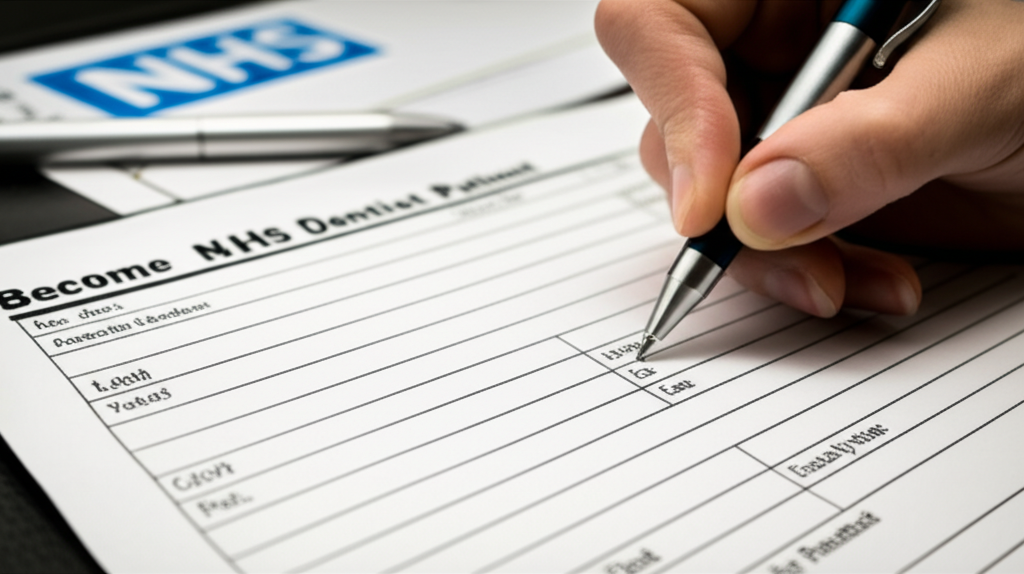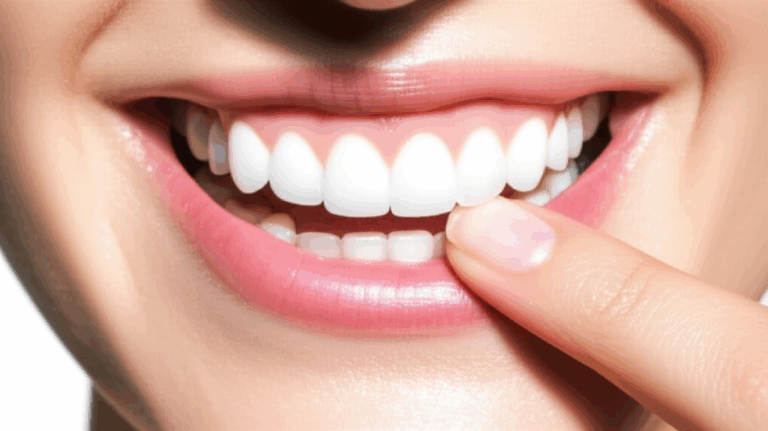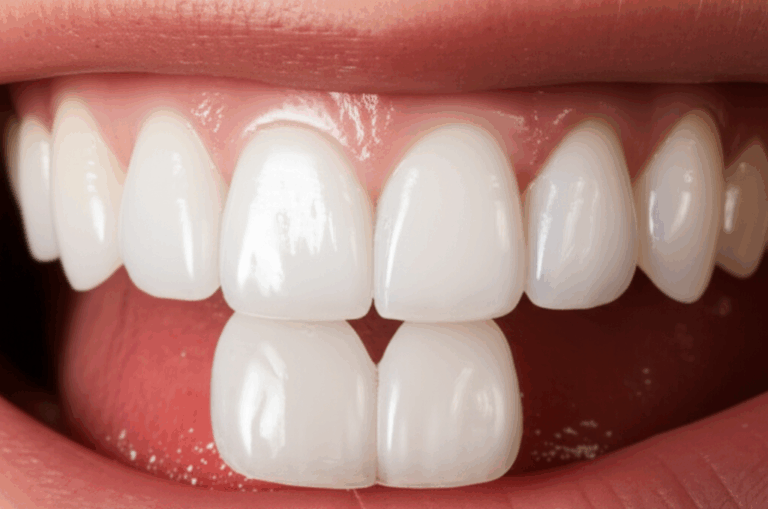
How to Become an NHS Dentist Patient: Your Step-by-Step Guide to Accessing Affordable Dental Care in the UK
That feeling you get when you bite into ice cream and realize you haven’t seen a dentist in ages? You’re not alone. Maybe you’ve moved to a new place, just turned 18, or noticed how much private dental care can cost. Finding an NHS dentist these days can feel like looking for a golden ticket. Maybe you’ve called lots of dental offices—no luck. Or maybe you’re just starting out and want to avoid any mistakes. Whatever brought you here, you probably want one thing: affordable, reliable dental care for you or your family.
This guide will give you easy steps, explain the NHS dental system, and help you look after your teeth. Let’s help you smile with confidence—without spending too much.
In This Article
- Understanding NHS Dentistry: What it Offers
- Step 1: Finding an NHS Dentist Accepting New Patients
- Step 2: Registering with an NHS Dentist
- Understanding NHS Dental Charges and Exemptions
- What If You Can’t Find an NHS Dentist? Alternatives and Emergency Care
- Tips for Maintaining Good Oral Health While Waiting for an NHS Dentist
- Frequently Asked Questions (FAQs)
- Your Path to NHS Dental Health
Understanding NHS Dentistry: What it Offers
What Is an NHS Dentist?
NHS dentists are dental workers who give tooth care through the National Health Service. Their job is simple but important: to give people in the UK important dental treatment that most can afford.
Think of NHS dental care as your basic toolbox—regular check-ups, X-rays, fillings, simple tooth removals, and advice for a healthy mouth. It’s like getting the basic stuff done, so you don’t have bigger (and more expensive) problems later.
NHS dentistry tries to stop problems before they start. It covers:
- Regular check-ups
- Fillings, root canals, simple extractions
- Crowns, bridges, dentures (when really needed)
- Emergency dental care
NHS vs. Private Dentistry: What’s the Difference?
You might think, “Why not just go private?” Private dentists often offer quicker appointments and more fancy treatments (like whitening and veneers). But, costs are much higher than the NHS.
NHS Dentistry:
- Lower, set prices (we’ll explain later)
- Only covers treatments you really need
- Longer waiting times—especially for new patients
Private Dentistry:
- More freedom, extra types of treatments
- Appointments usually quicker
- Higher charges (even for a simple check-up)
Who Can Get NHS Dental Care?
Good news: most people living in the UK can!
- UK Residents: You just need to live in the country; you don’t need to be signed up with a GP first.
- Temporary Residents: Sometimes, students and those working in the UK too.
- Special Groups: Kids, pregnant women, people with low incomes, refugees, asylum seekers, and some visitors can get free or cheaper treatment.
If you’re not sure, check the NHS website or ask at your local dentist.
Step 1: Finding an NHS Dentist Accepting New Patients
So, you’re ready to start—but how do you find a dental office taking new NHS patients? In some areas, it feels harder than getting a ticket to a popular concert. Here’s what you can do.
Using the NHS Website Search Tool
Your first stop is the NHS Find a Dentist tool. Here’s how to use it:
- Enter Your Postcode: Find dental practices near you.
- Filter for “Accepting New NHS Patients”: Only some will be seeing new adults or kids.
- Call Anyway: Even if a practice isn’t listed as accepting, call them. Sometimes lists are old and some places have hidden waiting lists.
Calling Local Dental Offices
Sometimes, picking up the phone works best.
- Call Around: Some dental offices don’t change their online details often. Call them and ask if they take NHS patients or if you can join a waiting list.
- Ask for Tips: Your GP, local chemist, or your child’s school might know which dentists are seeing new NHS patients.
Word of Mouth & Local Groups
Local tips can make all the difference.
- Local Forums or Facebook Groups: People will share their own experiences.
- Community Centres or Healthwatch England: Staff might know which dentists can take you.
Step 2: Registering with an NHS Dentist
A common mistake: many think registering with an NHS dentist works just like with a GP. But really, it’s much easier.
The Registration Process
- No Long Forms: You don’t really “register.” You just book and go to your first NHS appointment at the practice.
- Re-Register if Needed: If you haven’t had an appointment for two years, the practice can remove you from their list and you’ll need to start again.
- What to Bring: Bring your name, address, date of birth, and NHS number (if you know it). For kids, a parent or guardian should come along.
At Your First Appointment
This is where you and the dentist get to know each other.
- Check-Up: The dentist looks at your teeth, gums, and mouth. You might get X-rays.
- Treatment Plan: If you need anything done, the dentist will tell you what needs doing, which NHS band it is, and what it will cost.
- Ask Questions: Bring up any worries or ask for advice on cleaning or diet.
Understanding NHS Dental Charges and Exemptions
NHS Dental Treatment Bands
The best thing about NHS dentistry? Straightforward prices—you won’t get a big surprise bill.
These are the prices in England (from April 2024):
- Band 1 (£26.80):
- Check-up
- Diagnosis
- Advice and X-rays
- Scale & polish (if needed)
- Preventative care
- Band 2 (£73.50):
- Everything in Band 1
- Fillings
- Pulling teeth
- Root canal work
- Band 3 (£319.10):
- All Band 1 and 2 work
- Crowns, bridges, dentures
You only pay once for treatments in the same band if done within two months.
Who Doesn’t Have to Pay?
Dental care can be totally free if you fit into certain groups:
- Under 18, or under 19 and in full-time school
- Pregnant or had a baby in the last year (with a valid certificate)
- Getting some income-based benefits (like Universal Credit, Income Support, Pension Credit, and others)
- You have an HC2 certificate
Tell the receptionist if you think you don’t have to pay and bring proof.
NHS Low Income Scheme
If you don’t get free care but have money worries, you can apply for help through the NHS Low Income Scheme.
- HC2 Certificate: Covers all NHS dental costs.
- HC3 Certificate: Reduces what you pay depending on your income.
You can apply online or get a form from your dentist.
What If You Can’t Find an NHS Dentist? Alternatives and Emergency Care
Not everyone will find an NHS dentist right away. Some places—called “dental deserts”—are really hard. But don’t give up! There are still choices.
How Hard Is It to Get an NHS Dentist?
Recent numbers are tough. As few as 10% of places in England are taking new adult NHS patients now, and it’s even less in country areas. Waiting lists can be months or even years. Still, knowing your options helps.
Urgent Dental Care
Bad toothache? Swelling? Broken tooth? Don’t wait.
- Call NHS 111: This service tells you where to get urgent dental care or emergency help.
- Urgent Dental Centres: Some places have clinics for pressing cases.
- Walk-In Services: Some big hospitals have dental walk-in clinics.
What’s an emergency?
- Bad toothache that won’t stop
- Face swelling that makes eating, breathing or swallowing hard
- Tooth knocked out or badly broken
For emergencies, get help right away.
Private Dental Care
If you can’t wait, there’s always private care—though it’s more expensive.
- Faster appointments: Usually you’ll get seen sooner.
- Varied costs: Even a simple check-up costs more than Band 1.
- Payment plans: Some places let you pay bit by bit.
If you want special treatments like crowns, bridges or implants, prices are higher than NHS, but you can learn more about implant costs if you need to.
Dental Schools and Hospitals
In some cities, dental schools let students (supervised by dentists) treat patients for lower prices. Places are limited, but it’s worth asking.
Tips for Maintaining Good Oral Health While Waiting for an NHS Dentist
Booked an appointment or still waiting? You can take care of your teeth right now:
Daily Habits
- Brush twice a day: Use toothpaste with fluoride and brush for at least two minutes.
- Floss every day: Or use tiny brushes to clean between teeth.
- Cut down on sugar: Sweets and fizzy drinks are not good for teeth—keep them for treats.
Lifestyle Choices
- Drink more water: Rinsing helps wash away acids after meals.
- Don’t smoke: Smoking causes gum disease and stains your teeth.
Check-Ups
- Check yourself: Look in the mirror for new lumps, sores, or bleeding.
- One-off private check-ups: If you can, a private visit can spot problems early.
If you wear dentures or retainers, clean them each day. If you ever need repairs, see what’s available from a removable denture lab.
Frequently Asked Questions (FAQs)
Can I be removed by an NHS dentist?
Yes. If you don’t go for two years, the office might remove you from their NHS list. To stay “active,” get a check-up every one or two years.
Do I need an NHS GP to get an NHS dentist?
No. You can get NHS dental care no matter which GP you use—or even if you don’t have a GP.
How long is the wait for an NHS appointment?
It really depends. Sometimes it’s just weeks, other times you might be on a waiting list for months (or longer). Kids, pregnant women, and urgent cases usually go first.
Can I pick my NHS dentist?
Yes, you can ask any NHS practice. It just depends if they have room for new patients, if not, try the next one.
What if I miss an NHS dental appointment?
You won’t be charged if you miss an appointment. But if you skip lots of appointments (without a good reason) you could be taken off the list.
What about braces or advanced work?
NHS pays for braces for kids (if really needed), but not for adults unless it’s for health reasons. Dental implants, tooth whitening, and veneers are usually private. If you want to know about crowns or bridges, you can read about what’s possible from a crown and bridge lab.
Your Path to NHS Dental Health
Let’s review what you should remember:
Top Tips:
- Anyone in the UK can get NHS dental care, but finding a dentist with places open might take time and calling around.
- Best way: Use the NHS search tool, but always phone around and check local groups for up-to-date info.
- No sign-up needed: You become a patient when you go to your first appointment.
- Set charges: NHS dental prices are in clear bands; many can get free or cheaper care.
- Don’t wait: For pain or emergencies, use NHS 111 or go to an urgent dental centre right away.
- Look after your teeth at home: Good habits now save trouble (and money) later.
Next Steps
Remember, you’re not the only one facing the NHS dental puzzle. The main goal? A happy, pain-free smile that won’t empty your wallet.
For more help on crowns, bridges, or the newest dental fixes, you can learn more from a digital dental lab. Being proactive keeps you ahead!
This guide is here to help you on your journey to better oral health. If you’re ever unsure, talk to a dentist or use official NHS websites for the latest advice. A healthy smile is always worth the effort.








